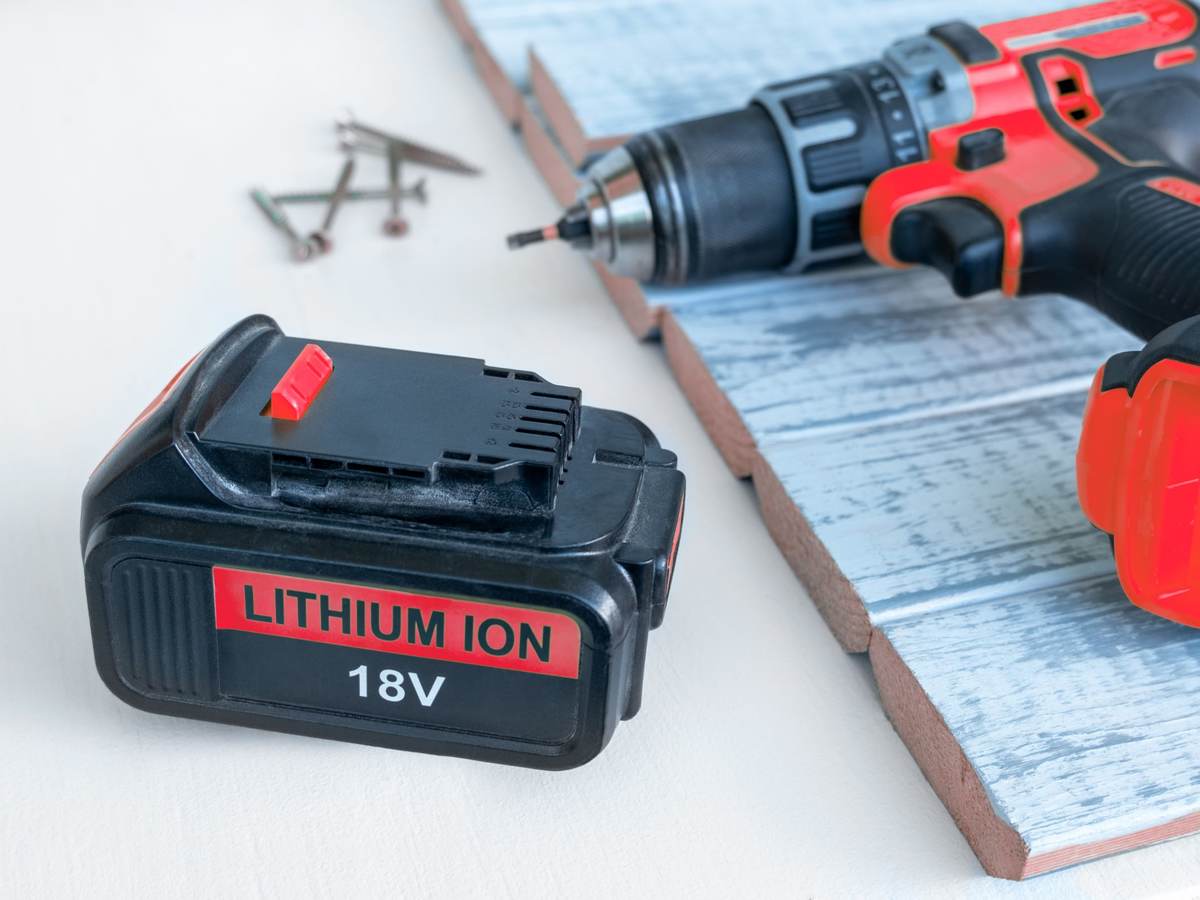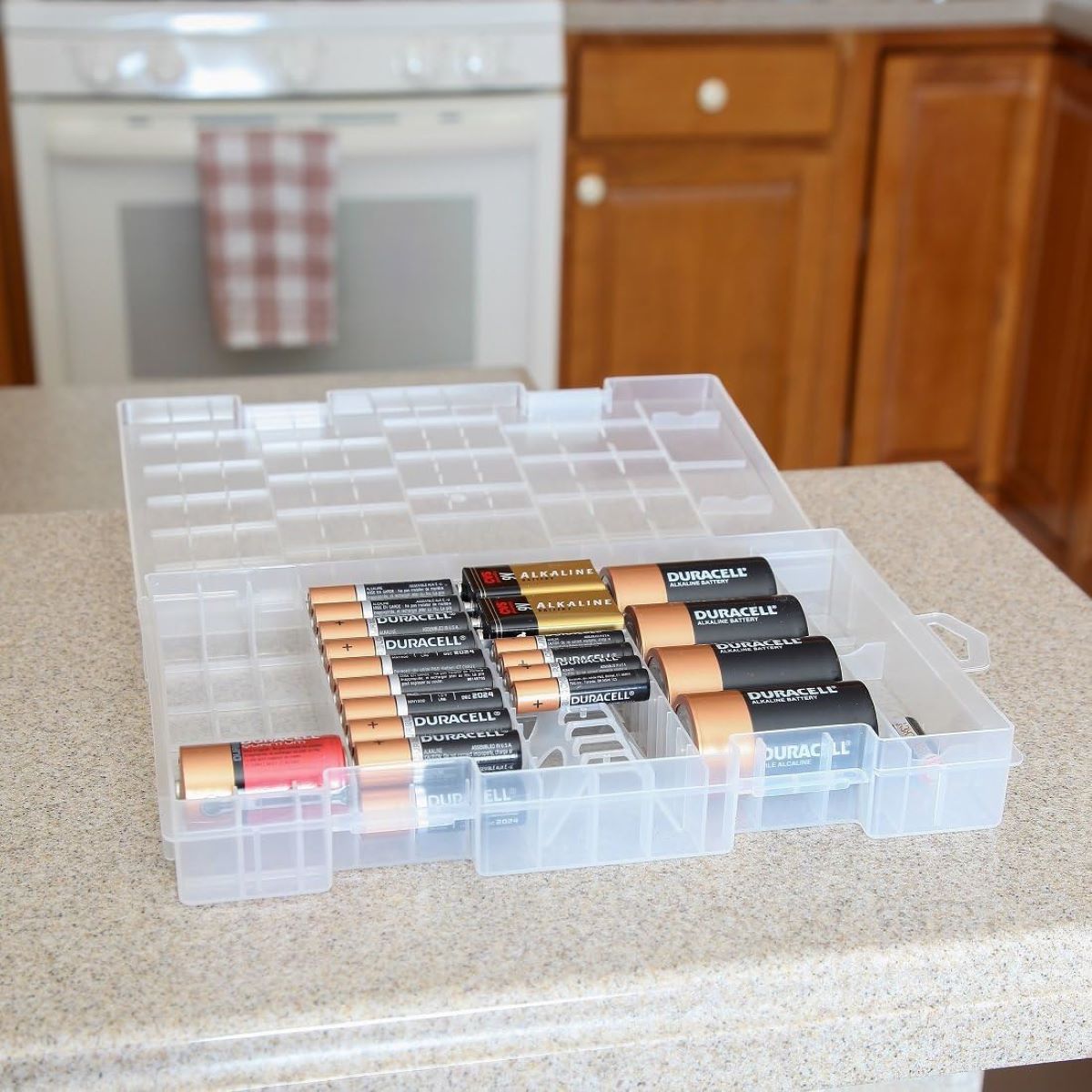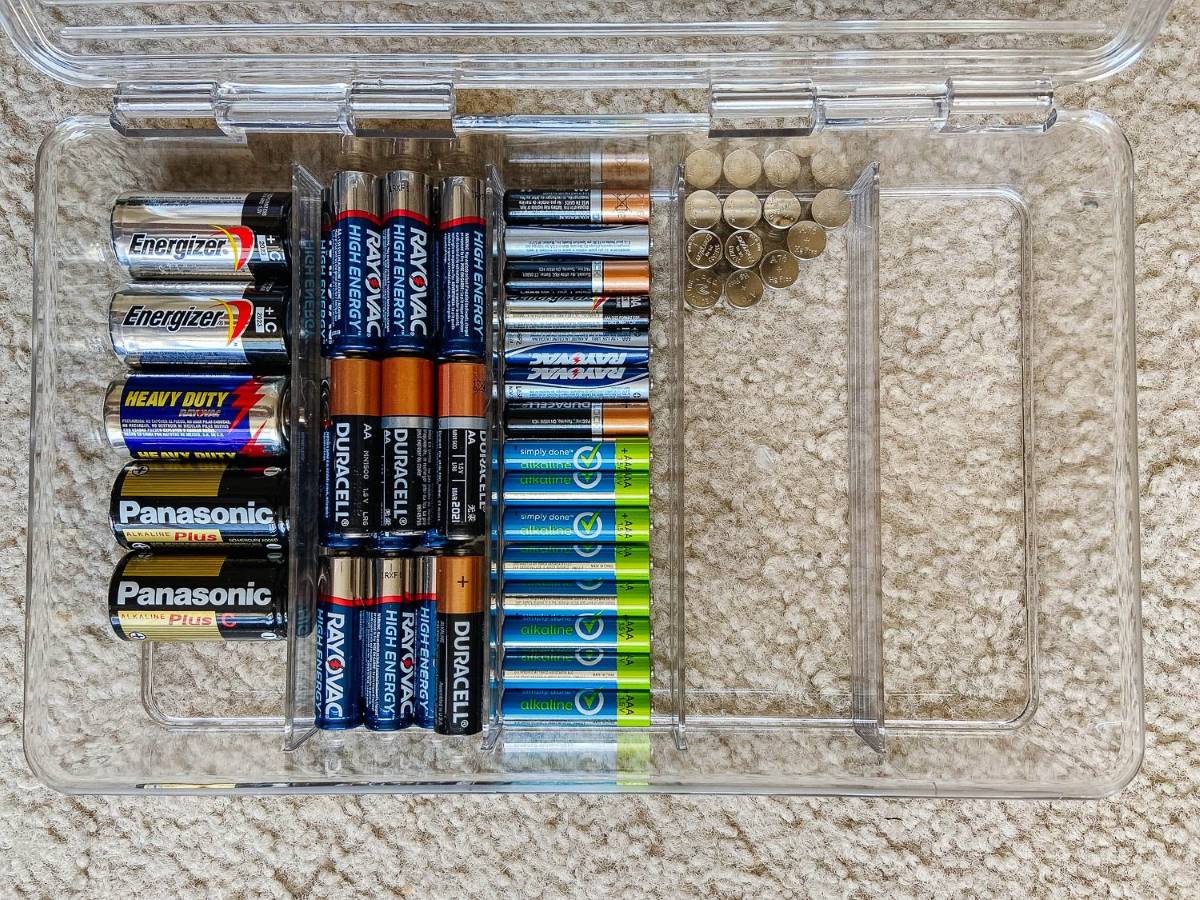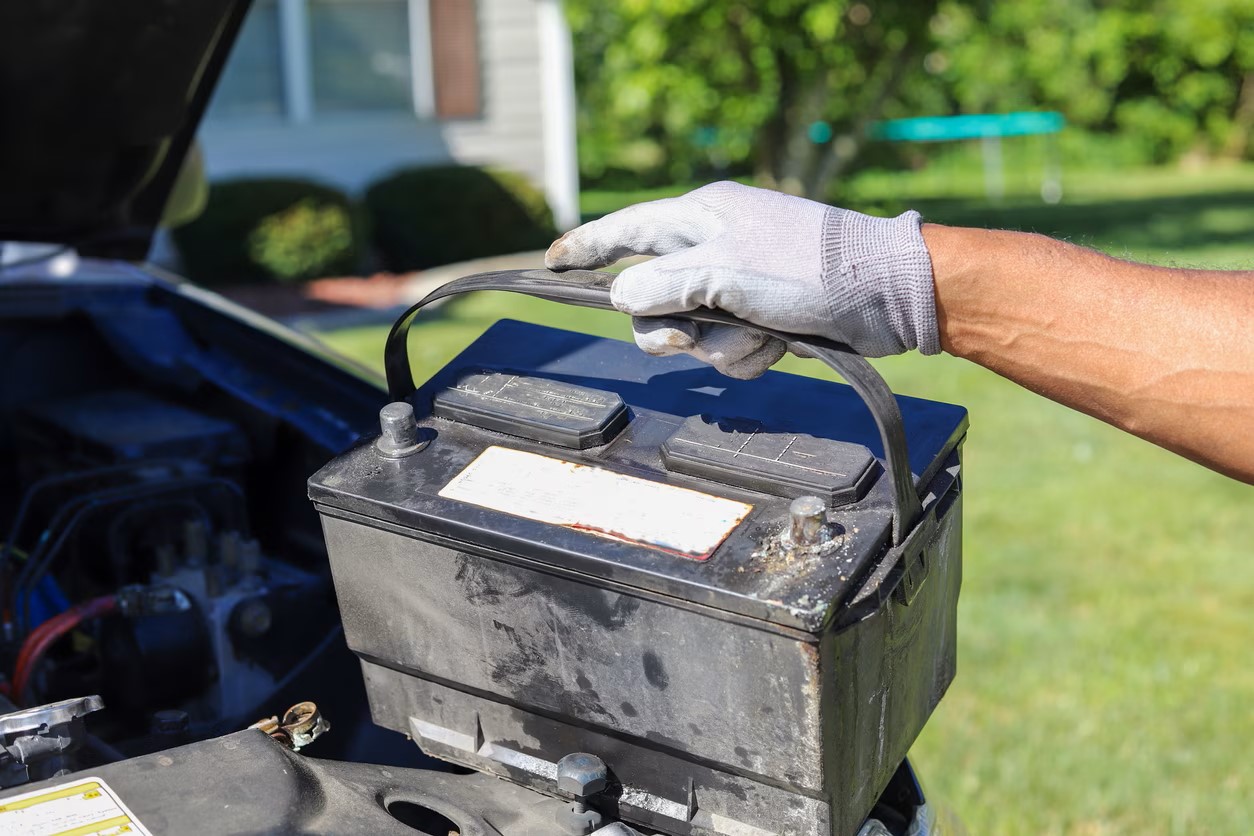

Articles
How To Store A Lithium Battery
Modified: January 14, 2024
Learn the best methods and tips for storing a lithium battery in this informative and comprehensive article. Find out how to maximize its lifespan and ensure optimal performance.
(Many of the links in this article redirect to a specific reviewed product. Your purchase of these products through affiliate links helps to generate commission for Storables.com, at no extra cost. Learn more)
Introduction
Lithium batteries have become an integral part of our lives, powering everything from smartphones to electric vehicles. However, there may be times when you need to store a lithium battery for an extended period. Whether it’s due to travel restrictions, seasonal usage, or simply having a backup battery, understanding how to store a lithium battery properly is crucial to maintaining its longevity and safety.
In this article, we will delve into the world of lithium batteries, explore the best practices for storing them, find suitable storage locations, and discuss important safety considerations. By following these guidelines, you can ensure that your lithium batteries remain in optimum condition and ready for use when you need them.
Key Takeaways:
- Proper storage of lithium batteries is crucial for longevity and safety. Follow temperature, moisture, and physical damage guidelines to ensure optimal battery condition and performance.
- Prioritize safety when storing lithium batteries. Avoid extreme temperatures, handle with care, and follow manufacturer guidelines for safe and effective storage.
Read more: How To Store Lithium Ion Battery
Understanding Lithium Batteries
Before diving into the proper storage methods, it’s important to have a basic understanding of lithium batteries. Lithium batteries are rechargeable batteries that use lithium ions to generate electrical energy. They are known for their high energy density, long lifespan, and light weight, making them an ideal choice for portable electronic devices.
Lithium batteries come in various forms, including Lithium-Ion (Li-Ion) and Lithium Polymer (LiPo) batteries. Li-Ion batteries are commonly used in smartphones, laptops, and other consumer electronics, while LiPo batteries are often found in drones, remote-controlled vehicles, and power banks.
It’s essential to note that lithium batteries contain volatile chemicals and must be handled with care. They are sensitive to extreme temperatures, moisture, and physical damage, which can lead to performance degradation or, in worst cases, safety hazards such as leakage, overheating, or even explosion.
Therefore, understanding the nature of lithium batteries is vital when it comes to storing them properly. By following the guidelines, you can minimize the risks and ensure the batteries’ integrity during storage.
Storing Lithium Batteries Properly
Proper storage of lithium batteries is essential to maintain their performance and prevent any safety issues. Here are some key considerations to keep in mind when storing lithium batteries:
- Avoid extreme temperatures: Lithium batteries should be stored in a cool, dry place with temperatures ranging between 15-25 degrees Celsius (59-77 degrees Fahrenheit). Avoid storing them in areas where the temperature exceeds 60 degrees Celsius (140 degrees Fahrenheit) or falls below -20 degrees Celsius (-4 degrees Fahrenheit). Extreme temperatures can affect the battery’s chemistry and reduce its capacity or overall lifespan.
- Keep away from moisture: Lithium batteries are highly sensitive to moisture, which can lead to corrosion or short circuits. Ensure that the storage area is dry and free from any sources of moisture or humidity, such as bathrooms or basements. Consider using airtight containers or bags to provide an additional layer of protection against moisture.
- Protect from physical damage: Lithium batteries should be stored in a way that minimizes the risk of physical damage. Avoid storing them with sharp objects or in areas prone to vibration or impact. If possible, keep them in their original packaging or use protective cases to prevent any accidental damage.
- Store at partial charge: Lithium batteries should be stored at a partial charge rather than fully charged or completely drained. A charge level between 40-60% is considered ideal for long-term storage. This helps to ensure that the battery remains stable and doesn’t experience excessive self-discharge during storage.
- Periodically check and recharge: If you are storing lithium batteries for an extended period, it’s crucial to periodically check their charge levels and recharge them if necessary. Batteries gradually lose charge over time, and allowing them to discharge completely can cause irreversible damage. Aim to recharge the batteries to their recommended storage charge level every 3-6 months.
By following these guidelines, you can create a suitable storage environment for your lithium batteries, promoting their longevity and ensuring they are ready for use when needed.
Finding Suitable Storage Locations
When it comes to storing lithium batteries, choosing the right storage location is crucial. Here are some factors to consider when finding a suitable storage area:
- Avoid high-temperature areas: Select a storage location that is away from direct sunlight and heat sources. Avoid areas like attics, garages, or near appliances that generate heat, as high temperatures can accelerate the degradation of lithium batteries.
- Ensure good ventilation: Proper ventilation is important to dissipate any heat emitted by the batteries and prevent the buildup of any potentially harmful gases. Avoid storing lithium batteries in enclosed spaces or airtight containers without adequate airflow.
- Opt for a stable temperature environment: Stability in temperature is key to maintaining the integrity of lithium batteries. Fluctuations in temperature can cause stress to the battery cells and degrade their performance over time. Choose a storage location that offers a relatively constant temperature, such as a temperature-controlled room or a closet.
- Consider fire safety: Keep in mind the importance of fire safety when selecting a storage area for lithium batteries. Avoid storing them near flammable materials or sources of ignition. If possible, choose a location with fire suppression measures in place, such as a fire extinguisher or a smoke detector.
- Keep out of reach of children and pets: Store lithium batteries in a place that is out of reach of children and pets. The chemicals inside the batteries can be harmful if ingested, and the batteries themselves pose a choking hazard. Consider using childproof containers or cabinets for added safety.
By considering these factors, you can find a suitable storage location that ensures the safety and longevity of your lithium batteries.
Store lithium batteries in a cool, dry place away from direct sunlight and extreme temperatures. Avoid storing them fully charged or fully discharged for long periods to prolong their lifespan.
Preparing Lithium Batteries for Storage
Before storing lithium batteries for an extended period, it’s important to take some preparatory steps to ensure their longevity and safety. Here are some essential steps to follow:
- Clean the batteries: Thoroughly clean the exterior of the batteries with a soft, dry cloth to remove any dirt, dust, or residue. This helps to prevent any potential corrosion during storage.
- Check for damage: Inspect the batteries for any signs of physical damage, such as dents, bulges, or leaks. If you come across any damaged batteries, it’s best to dispose of them properly instead of storing them.
- Discharge to recommended storage level: If the batteries are fully charged, it’s advisable to discharge them to the recommended storage level, typically around 40-60% of their capacity. This helps to reduce the stress on the battery cells during storage.
- Remove from devices: If the batteries are currently inserted in any electronic devices, remove them before storing. This prevents any parasitic drain or potential damage that could occur if the device is turned on accidentally during storage.
- Label and organize: If you have multiple lithium batteries to store, it’s a good idea to label them individually with the date of storage. This helps to keep track of their age and ensures that the oldest batteries are used first. Additionally, organize them in a way that prevents any accidental short circuits or contact between the battery terminals.
By following these preparation steps, you can ensure that your lithium batteries are ready for storage and remain in optimal condition until you need them again.
Storing Lithium Batteries Long-Term
When storing lithium batteries for an extended period, it’s essential to follow specific guidelines to maintain their performance and safety. Here are some key points to consider for long-term storage:
- Choose the right storage containers: Select appropriate storage containers for your lithium batteries. Avoid metal containers that may conduct electricity or containers that are prone to moisture buildup. Opt for non-conductive plastic containers or specialized battery cases.
- Separate batteries: If storing multiple lithium batteries, ensure they are stored separately to prevent accidental short circuits. Each battery should be stored in its own compartment or container to avoid contact between the terminals.
- Monitor temperature and humidity: Keep an eye on the storage area’s temperature and humidity levels. Use a thermometer and a hygrometer to ensure they remain within the ideal ranges. Extreme temperature or humidity fluctuations can compromise the batteries’ performance.
- Avoid extreme cold temperatures: While lithium batteries can tolerate colder temperatures, storing them in extremely cold environments, such as freezers, should be avoided. The low temperatures can cause the battery to become less efficient and potentially lead to irreversible damage.
- Periodically inspect batteries: Check the batteries periodically during storage to ensure they remain in good condition. Look for signs of leakage, corrosion, or physical damage. If any issues are detected, handle and dispose of the batteries according to local regulations.
- Keep batteries accessible: Store lithium batteries in a location that is easily accessible. This makes it convenient to check them periodically, recharge if necessary, or retrieve them when needed. Avoid burying them under heavy or stacked items that may make retrieval difficult.
- Follow manufacturer guidelines: Always refer to the manufacturer’s guidelines and recommendations for storing their specific lithium batteries. Different brands or models may have unique considerations that should be taken into account.
By following these long-term storage practices, you can ensure that your lithium batteries retain their performance and are ready for use whenever you need them.
Important Safety Considerations
When storing lithium batteries, it’s crucial to prioritize safety to prevent any accidents or hazards. Here are some important safety considerations to keep in mind:
- Avoid extreme temperatures: As mentioned earlier, extreme temperatures can be detrimental to lithium batteries. Avoid exposing them to excessive heat or cold, as it can affect their performance and potentially lead to safety risks.
- Do not puncture or disassemble: Under no circumstances should you puncture or disassemble lithium batteries. Doing so can release toxic chemicals and result in fire or explosion. If a battery is damaged or malfunctions, handle it with care and dispose of it properly.
- Prevent exposure to water: Lithium batteries are highly sensitive to moisture. Keep them away from water sources and avoid exposing them to any liquids. Even a small amount of water can damage the battery and pose safety hazards.
- Avoid mixing old and new batteries: When using multiple lithium batteries, avoid mixing old and new batteries or batteries of different capacities. Mismatched batteries can cause uneven discharge or charging, leading to performance issues and potential safety risks.
- Properly dispose of damaged or expired batteries: If you come across any damaged or expired batteries during storage, it’s important to handle and dispose of them correctly. Contact your local recycling or hazardous waste disposal facility for proper battery disposal methods.
- Keep batteries out of reach: Store lithium batteries in a location that is out of reach of children and pets. Ingesting or mishandling lithium batteries can result in serious health consequences. If accidental ingestion occurs, seek medical attention immediately.
- Use chargers and accessories as directed: When charging or using lithium batteries, follow the instructions provided by the manufacturer. Use the designated chargers and accessories approved for the specific battery model to prevent any safety issues.
By adhering to these safety considerations, you can ensure the proper storage and handling of lithium batteries, minimizing any potential risks or accidents.
Conclusion
Properly storing lithium batteries is essential to maintain their performance, longevity, and safety. By understanding the nature of lithium batteries and following the guidelines outlined in this article, you can ensure that your batteries remain in optimal condition and are ready for use when needed.
Remember to choose suitable storage locations that are cool, dry, and well-ventilated. Avoid exposing lithium batteries to extreme temperatures, moisture, or physical damage. Prepare the batteries for storage by cleaning them, checking for damage, and discharging them to the recommended storage level.
During long-term storage, it’s important to monitor the storage area’s temperature and humidity levels and periodically inspect the batteries for any signs of deterioration. Additionally, prioritize safety by avoiding puncturing or disassembling batteries, preventing exposure to water, and properly disposing of damaged or expired batteries.
By following these guidelines and considering the safety considerations, you can ensure the longevity and safety of your lithium batteries, keeping them in optimal condition for future use.
Remember to always consult the manufacturer’s guidelines specific to your battery model for any additional recommendations or precautions. With proper storage and care, your lithium batteries will be ready to power your devices effectively when you need them.
Frequently Asked Questions about How To Store A Lithium Battery
Was this page helpful?
At Storables.com, we guarantee accurate and reliable information. Our content, validated by Expert Board Contributors, is crafted following stringent Editorial Policies. We're committed to providing you with well-researched, expert-backed insights for all your informational needs.















0 thoughts on “How To Store A Lithium Battery”